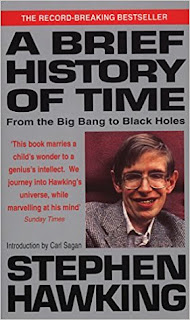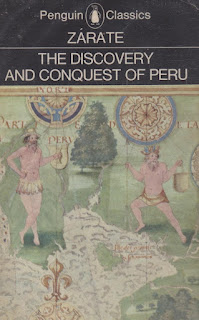One of the things that has happened while doing this 7 days thing is that, I've started looking into my book shelf for books that I know were there and just don't know exactly where I put them in. And I come across other books and start reading them.
The Landmark book shop, when it was operating out of the Spencer Plaza, was a great place to lose myself over weekends. There a many a happy weekends I've spent - walking to the British council library in the morning and from there to Landmark in the afternoon and spend the entire evening there . This was right after my college days were over and when I was discovering Chennai.
So it was a personal loss when they close down this store a few years back and the one in Ampa mall feels more like a gift shop than a book store. Finding a book store close to heart is very important for every bibliophile and these days my favorite haunts were the Starmark in Phoenix Market City and the Odyssey.
It was in the erstwhile Landmark store that I got hold of 'Cosmos'. I have read about Carl Sagan earlier in Sujatha's books and that was more of an introduction. Strange as it may seem, my introduction to this world of popular science books started with Alvin Toffler and his fantastic 'Future Shock'.
I've read 'A brief history of Time' during college and though I couldn't understand half of it, I was hooked to this genre.
'Cosmos' is interesting because there is nothing there that is difficult to understand. It is sort of a philosophical musings over Astronomy and other branches of Physical science. There is some science, some history and a lot of musings. That's what makes it a great book.
Carl Sagan speaks directly us and in his own voice, like a gentle professor teaching his students - explaining in simple terms the complex science behind the stars, searching for Aliens etc. It is impossible to put the book down once you started on it.
It is important to understand the basic of Carl Sagan's teachings from the book - which to me, essentially boils down to - question everything. Scientific approach makes one skeptical of everything and be at awe at Nature.
“Every one of us is, in the cosmic perspective, precious. If a human disagrees with you, let him live. In a hundred billion galaxies, you will not find another.”
The perspective of who we are is very important if we do not self-destruct in a few years (or a few hundred years). But to the universe itself, we are not that important. We are just a small blink in the Cosmic timeline and it is kind of terrifying to think that no one cares whether this planet exists or now.
The television series which was made out of the book - or is it the other way around - hosted by Carl Sagan is surely to be watched, in case books seem terrifying.
When I was thinking of these the other two books that I wanted to write about were 'A brief history of Time' by Stephen Hawking and 'Surely you're joking, Mr. Feynman' by Richard Feynman.
'A brief history of Time' was read much earlier than Cosmos and while I did not understand all the science in that book at that time, it had a profound impact on the way I look at everything around me. Hawking remained a favorite and while I tried to read further books by him, they were - to me - way above my head.
Richard Feynman worked and lived in Los Angeles and he worked out of Caltech. I remember seeing the life-size portrait of Feynman at the Caltech book store - while wandering the streets of Pasadena when I lived there. I think I picked up the book there because he was looking cool in the portrait. It tells something that I started writing about the man when trying to write about the book.
Feynman's book is more of an autobiography and not exactly a science book. Nevertheless it is an interesting book to understand how a scientific mind works and what curiosity can do to your life. Many years later, I condensed the chapters of the book to be told as bed time stories to the kids and it was easy to see why Feynman is such a captivating writer - the kids loved the stories (Read more about it here -> Bedtime Stories). A few years later, Vanathy read the book on her own and hope took the same learning I've had from it.
The Landmark book shop, when it was operating out of the Spencer Plaza, was a great place to lose myself over weekends. There a many a happy weekends I've spent - walking to the British council library in the morning and from there to Landmark in the afternoon and spend the entire evening there . This was right after my college days were over and when I was discovering Chennai.
So it was a personal loss when they close down this store a few years back and the one in Ampa mall feels more like a gift shop than a book store. Finding a book store close to heart is very important for every bibliophile and these days my favorite haunts were the Starmark in Phoenix Market City and the Odyssey.
It was in the erstwhile Landmark store that I got hold of 'Cosmos'. I have read about Carl Sagan earlier in Sujatha's books and that was more of an introduction. Strange as it may seem, my introduction to this world of popular science books started with Alvin Toffler and his fantastic 'Future Shock'.
I've read 'A brief history of Time' during college and though I couldn't understand half of it, I was hooked to this genre.
'Cosmos' is interesting because there is nothing there that is difficult to understand. It is sort of a philosophical musings over Astronomy and other branches of Physical science. There is some science, some history and a lot of musings. That's what makes it a great book.
Carl Sagan speaks directly us and in his own voice, like a gentle professor teaching his students - explaining in simple terms the complex science behind the stars, searching for Aliens etc. It is impossible to put the book down once you started on it.
It is important to understand the basic of Carl Sagan's teachings from the book - which to me, essentially boils down to - question everything. Scientific approach makes one skeptical of everything and be at awe at Nature.
“Every one of us is, in the cosmic perspective, precious. If a human disagrees with you, let him live. In a hundred billion galaxies, you will not find another.”
The perspective of who we are is very important if we do not self-destruct in a few years (or a few hundred years). But to the universe itself, we are not that important. We are just a small blink in the Cosmic timeline and it is kind of terrifying to think that no one cares whether this planet exists or now.
The television series which was made out of the book - or is it the other way around - hosted by Carl Sagan is surely to be watched, in case books seem terrifying.
When I was thinking of these the other two books that I wanted to write about were 'A brief history of Time' by Stephen Hawking and 'Surely you're joking, Mr. Feynman' by Richard Feynman.
'A brief history of Time' was read much earlier than Cosmos and while I did not understand all the science in that book at that time, it had a profound impact on the way I look at everything around me. Hawking remained a favorite and while I tried to read further books by him, they were - to me - way above my head.
Richard Feynman worked and lived in Los Angeles and he worked out of Caltech. I remember seeing the life-size portrait of Feynman at the Caltech book store - while wandering the streets of Pasadena when I lived there. I think I picked up the book there because he was looking cool in the portrait. It tells something that I started writing about the man when trying to write about the book.
Feynman's book is more of an autobiography and not exactly a science book. Nevertheless it is an interesting book to understand how a scientific mind works and what curiosity can do to your life. Many years later, I condensed the chapters of the book to be told as bed time stories to the kids and it was easy to see why Feynman is such a captivating writer - the kids loved the stories (Read more about it here -> Bedtime Stories). A few years later, Vanathy read the book on her own and hope took the same learning I've had from it.




No comments:
Post a Comment